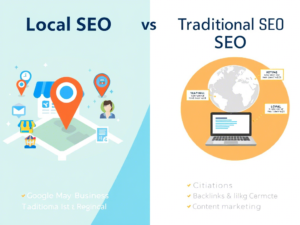Make Money as a Web Developer
Introduction
Have you ever wondered how to turn your web development skills into a steady income stream? The potential is immense, but navigating the path to financial success can feel overwhelming. Whether you’re a seasoned coder or just starting, this ultimate guide on making money as a web developer is your roadmap to unlocking lucrative opportunities. We’ll delve into building a solid foundation, exploring active and passive income streams, and leveling up your earnings. Get ready to transform your passion for coding into a thriving career and achieve financial independence.

Table of Contents
Establishing Your Foundation
Essential Web Development Skills to Master
Essential Web Development Skills to Master in 2024 and Beyond
The world of web development is constantly evolving, offering exciting opportunities for skilled professionals. Whether you’re aiming to be a freelance web developer, land a web design job, or offer website development services near you, mastering these core skills is essential.
Front-End Development Fundamentals (HTML, CSS, JavaScript)
The front end is what users see and interact with. As a web designer, you’ll need a strong command of these foundational languages:
- HTML (Hypertext Markup Language): This is the backbone of any webpage, defining its structure and content.
- CSS (Cascading Style Sheets): CSS controls the visual presentation, layout, and styling of your web pages.
- JavaScript: This scripting language adds interactivity, and dynamic elements, and enhances user experience.
Mastering the front end allows you to create visually appealing and engaging websites that attract clients and potential employers.
Back-End Development Technologies (Node.js, Python, PHP, etc.)
The back end handles the “behind-the-scenes” logic, data processing, and server-side operations. Popular technologies for back-end development include:
- Node.js: A powerful JavaScript runtime for building scalable network applications.
- Python: A versatile language known for its readability and wide range of libraries and frameworks like Django and Flask.
- PHP: A scripting language often used for web development, especially for content management systems (CMS) like WordPress.
Understanding back-end technologies opens doors for you to build complex web applications and work on diverse projects.
Full-Stack Development: Bridging the Gap
Full-stack web developers are proficient in both front-end and back-end technologies. This versatility makes them highly sought-after in the job market and gives freelance web designers a competitive edge.
As a full-stack developer, you can handle entire projects independently, from design to deployment, making you a valuable asset to any team.
The Importance of Soft Skills (Communication, Problem-Solving)
Technical skills are essential, but don’t underestimate the power of soft skills:
- Communication: Communicate with clients, team members, and stakeholders to understand requirements and deliver results.
- Problem-Solving: Web development often involves troubleshooting and finding creative solutions to challenges.
- Collaboration: Work effectively with others, whether as part of a team or interacting with clients.
Strong soft skills are crucial for success in any web development role, whether you’re a freelancer or working in a company.
Choosing a Specialization (E-commerce, WordPress, etc.)
As you gain experience, consider specializing in specific areas to stand out in the competitive market:
- E-commerce Development: Build online stores and payment gateways.
- WordPress Development: Customize and develop websites using the popular CMS.
- Mobile-First Design: Create websites optimized for mobile devices.
Specializing can help you target specific web design jobs** and freelance web developer opportunities.**
Additional Tips for Aspiring Web Developers:
- Build a Portfolio: Showcase your best projects to potential clients and employers.
- Network: Connect with other web developers and designers to learn and find opportunities.
- Stay Updated: The web development landscape is constantly changing, so continuous learning is key.
By mastering these essential skills, showcasing your talents, and networking effectively, you’ll be well on your way to a successful career in web development, whether you’re a freelance web designer, seeking web design services, or looking for a website developer near me.

Building a Portfolio That Gets You Noticed
As a freelance web developer or web designer, your portfolio is your most powerful tool. It showcases your skills, creativity, and experience to potential clients and employers. But how do you build a portfolio that gets you noticed in the competitive world of web design services and website developer near me searches? Let’s dive in and explore some key strategies.
Personal Projects: Showcasing Your Creativity
Personal projects are an excellent way to demonstrate your passion and skills when you’re starting and don’t have a lot of client work to showcase.
- Ideas for Projects:
- Build a website or web app to solve a problem you’ve encountered.
- Redesign an existing website with a fresh, modern approach.
- Create a unique portfolio website to highlight your best work.
- Highlight Your Expertise: Use your projects to showcase your mastery of specific technologies or design styles that align with the types of freelance web developers or web design jobs you’re seeking.
- Iterate and Improve: Continuously update and refine your projects to reflect your growing skills and experience.
Contributing to Open Source: Gaining Experience and Exposure
Contributing to open-source projects can be a valuable way to gain real-world experience, learn from experienced developers, and get your work in front of a wider audience.
- Find the Right Project: Choose open-source projects that align with your interests and skills. Look for projects with active communities and well-defined contribution guidelines.
- Start Small: Begin by tackling smaller tasks, such as fixing bugs or improving documentation. Gradually take on more challenging contributions as you gain confidence.
- Showcase Your Contributions: Feature your open-source contributions prominently in your portfolio to demonstrate your collaborative skills and experience with industry-standard tools and workflows.
Freelance Work: Building Your Client Base
Freelance work is an excellent way to build your portfolio, gain experience working with real clients, and earn income while pursuing freelance web design jobs.
- Find Your Niche: Specialize in a particular area of web development or design, such as e-commerce, WordPress development, or user interface (UI) design. This can help you stand out in a crowded market and attract clients who need your specific expertise.
- Start Small: Begin by taking on smaller freelance projects to build your confidence and establish a track record of success. You can find these projects on freelance platforms, through networking, or by reaching out to local businesses.
- Deliver Excellent Results: Focus on providing high-quality work, meeting deadlines, and exceeding client expectations. Positive reviews and referrals can be invaluable for attracting new clients.
Internships: Getting a Foot in the Door
Internships can provide a structured learning environment, mentorship from experienced professionals, and a chance to build your portfolio while gaining industry experience.
- Search for Opportunities: Look for internships at web development agencies, tech companies, or design studios. Many companies offer internships specifically for aspiring web designers and website developers.
- Be Prepared: Have a polished portfolio and resume ready to showcase your skills. Be ready to discuss your career goals and how your experience aligns with the internship opportunity.
- Make the Most of It: Actively participate in the internship program, ask questions, and seek feedback. Network with your colleagues and mentors to build relationships and learn about potential job opportunities.
By following these strategies, you can build a portfolio that gets you noticed by potential clients and employers, helping you land your dream freelance web developer or web design job. Remember, your portfolio is a living document – constantly update it with your latest work and achievements to showcase your continued growth and expertise.
Active Income Streams
Thriving as a Freelance Web Developer
The world of freelance web development is brimming with opportunity. However, to truly thrive, you need more than just coding skills. Let’s delve into the strategies and insights that will set you on the path to success.
Finding Freelance Clients: Your Gateway to Projects
1. Freelance Platforms: Your Digital Marketplace
Freelance platforms like Upwork, Fiverr, and Freelancer are bustling hubs where clients seek talented freelance web developers. These platforms offer a structured way to showcase your skills, bid on projects, and build your reputation.
2. Networking: Building Connections that Count
Networking isn’t just about exchanging business cards. Attend industry events, join online communities, and engage with potential clients on social media. You never know when a conversation could lead to a web design job.
3. Referrals: The Power of Word-of-Mouth
Happy clients are your best advocates. Deliver exceptional work, exceed expectations, and don’t hesitate to ask for referrals. A strong referral can open doors to high-quality projects and long-term collaborations.
Setting Your Freelance Rates: Valuing Your Expertise
1. Research the Market: Know Your Worth
Before you set your rates, research what other freelance web developers are charging in your area and niche. Consider your experience, skills, and the complexity of the projects you take on.
2. Hourly vs. Project-Based: Choose Your Model
Hourly rates provide flexibility, while project-based fees offer predictability. Consider the nature of the work and your client’s preferences when deciding which model suits you best.
3. Value-Based Pricing: Focus on Results
Instead of solely focusing on the time you invest, consider the value you bring to your clients. If your web design services can increase their revenue or efficiency, your rates should reflect that.
Mastering Project Management for Freelancers: Delivering on Time and Budget
1. Clear Scoping: Define Expectations Upfront
Before you start any project, ensure you and your client are on the same page. Clearly define the project scope, deliverables, timelines, and budget. This prevents misunderstandings and ensures a smooth workflow.
2. Communication is Key: Keep Clients Informed
Regularly update your clients on your progress, address any concerns promptly, and be transparent about any potential roadblocks. This builds trust and fosters a positive working relationship.
3. Utilize Project Management Tools: Streamline Your Workflow
Tools like Asana, Trello, or Basecamp can help you track tasks, manage deadlines, and collaborate effectively with clients. Choose a tool that fits your needs and preferences.
Landing Your Dream Web Development Job
The web development field is booming in Pakistan, and scoring the perfect gig requires a strategic approach. Whether you’re seeking the flexibility of freelance web developer roles, looking to join a company as a web designer, or simply searching for a “website developer near me,” this comprehensive guide will equip you with the tools to navigate your job hunt.
Exploring Web Development Job Boards
Online job boards are a goldmine for discovering new opportunities. Utilize platforms like Rozee.pk, Indeed, and LinkedIn to filter searches specifically for “web design jobs” or “web development jobs” near you. Be sure to create job alerts for these keywords to receive instant notifications about relevant postings.
Researching Company Websites and Careers Pages
Many companies post job openings directly on their websites or dedicated career pages. Research local and international companies known for their web design services, and explore their current vacancies. Some companies might even be open to hiring.
Networking Your Way to Opportunities
Networking is a powerful tool for uncovering hidden job opportunities. Attend industry events, workshops, and webinars related to web development. Connect with fellow developers, designers, and recruiters on platforms like LinkedIn. Engaging in conversations about your skills and interests can lead to valuable referrals and job leads.
Acing the Web Development Job Interview
The interview stage is your chance to shine. Prepare for technical questions related to your skills and experience. Be ready to showcase your portfolio, which should highlight your best web design services and freelance web developer projects. Demonstrate your passion for web development and your eagerness to learn and grow.
Starting Your Web Development Agency
Embarking on the journey of establishing your web development agency can be both exciting and challenging. If you’ve honed your skills as a freelance web developer and are ready to level up, this path might be for you.
Identifying Your Agency’s Niche
In a competitive market flooded with web design services, defining your agency’s niche is crucial. Rather than being a generalist, specialize in a specific industry or type of web development (e.g., e-commerce, healthcare, education). This focused approach not only sets you apart from the competition but also attracts clients seeking web design jobs tailored to their specific needs.pen_spark
Building a Winning Team
As your agency grows, you’ll need to expand beyond your freelance web designer capabilities. Assemble a team of talented individuals with complementary skills, including web designers, developers, project managers, and marketers. A well-rounded team ensures that your agency can handle diverse website developer projects efficiently and deliver exceptional results.
Marketing Your Web Development Services
Effective marketing is essential to attract clients and grow your agency. Utilize a combination of online and offline strategies to reach your target audience. Leverage your website as a portfolio to showcase your expertise and previous web design jobs. Engage in content marketing, social media promotion, and search engine optimization (SEO) to enhance your online visibility. Networking at industry events and participating in freelance web developer communities can also open doors to new opportunities.
Earning as a Web Development Consultant
If leading a full-fledged agency isn’t your cup of tea, consider a career as a web development consultant. This path allows you to leverage your specialized knowledge and experience while enjoying more flexibility.
Leveraging Your Specialized Expertise
As a consultant, you can focus on a specific area of web development, such as UX/UI design, e-commerce development, or WordPress customization. By positioning yourself as an expert in your chosen niche, you’ll attract clients seeking web design services tailored to their unique requirements.
Choosing the Right Pricing Model
Determine a pricing model that aligns with your services and target clients. You can charge hourly rates, project-based fees, or even offer retainer packages. Researching industry standards and competitor pricing can help you set competitive rates that reflect your expertise and experience as a website developer.
Identifying and Attracting Consulting Clients
Networking remains a vital aspect of finding consulting clients. Attend industry events, connect with other freelance web designers, and leverage online platforms like LinkedIn to showcase your expertise. You might also consider reaching out directly to businesses who’ve posted web design jobs that align with your skills. Don’t underestimate the power of word-of-mouth recommendations; satisfied clients can become your most valuable marketing asset.
Passive Income Streams
Creating and Selling Digital Products for Developers – A Path to Passive Income and Expertise Building
For those involved in web design jobs or working as freelance web designers, developing digital products offers several advantages:
- Passive Income: Once created, your products can continue to generate revenue with minimal ongoing effort.
- Showcase Expertise: Your products demonstrate your skills and knowledge to potential clients and employers.
- Reach a Wider Audience: Digital products can be accessed by anyone with an internet connection, expanding your reach beyond local website developer near me searches.
Developing and Selling Website Themes
Website themes are pre-designed templates that determine the look and feel of a website. They’re highly sought after by individuals and businesses who want a professional-looking website without the need for extensive design knowledge.
- Target Audience: Individuals and businesses who lack design skills or time to create a custom website.
- Platform: Consider popular content management systems like WordPress, Shopify, or Wix.
- Marketing Tips:
- Showcase your themes with attractive demo sites.
- Offer excellent customer support to help users with customization.
- Consider offering bundles or discounts for multiple theme purchases.
Creating and Selling Code Templates
Code templates provide pre-written code snippets for specific functions or features. Developers often use them to save time and ensure consistent code quality.
- Target Audience: Other developers and programmers looking for efficiency.
- Platform: Sell on marketplaces like CodeCanyon or create your platform.
- Marketing Tips:
- Highlight the time-saving benefits and code quality your templates offer.
- Provide clear documentation and examples of how to use your templates.
- Offer customization services to tailor templates to specific needs.
Building and Marketing Plugins or Extensions
Plugins and extensions enhance the functionality of existing platforms like WordPress or Shopify. They cater to specific needs such as SEO optimization, e-commerce features, or social media integration.
- Target Audience: Website owners and developers looking for specific functionality.
- Platform: Marketplaces like the WordPress Plugin Directory or Shopify App Store.
- Marketing Tips:
- Clearly define the problem your plugin solves and its benefits.
- Offer free trials or freemium versions to attract users.
- Gather user feedback and actively improve your plugin based on their needs.
Designing and Selling Online Courses
Online courses are a fantastic way to share your knowledge and expertise with a global audience. They can cover a wide range of topics related to web development, web design, and other relevant skills.
- Target Audience: Aspiring web developers, web designers, and anyone seeking to upskill.
- Platform: Platforms like Udemy, Skillshare, or your website.
- Marketing Tips:
- Create engaging video content and interactive learning experiences.
- Offer a free introductory course to attract potential students.
- Promote your course through social media, your website, and email marketing.
Important Considerations:
- Quality is Key: Ensure your products are well-designed, functional, and thoroughly tested.
- Licensing: Choose a suitable licensing model (e.g., single-use, developer license) to protect your intellectual property.
- Marketing: Create a strong online presence, showcase your work on your portfolio website, and actively engage with your target audience on social media.
Affiliate Marketing for Web Developers
Affiliate marketing can be a lucrative way for freelance web developers and website developers to earn passive income. By partnering with companies offering web design services or other relevant products, you can promote their offerings to your audience and earn a commission on any resulting sales.
Choosing the Right Affiliate Products/Services
Not all affiliate products are created equal. As a freelance web designer, you’ll want to focus on products and services that align with your expertise and your audience’s needs. This could include:
- Web hosting providers: Recommend reliable hosting companies that offer excellent customer service and features that benefit your clients.
- Website builders: If you work with clients who need simple websites, suggest user-friendly website builders that don’t require coding skills.
- Design tools and software: Promote design software, stock photo subscriptions, or other resources that your fellow web designers would find valuable.
- Courses and educational resources: If you create tutorials or offer web design jobs, consider partnering with online course platforms to offer relevant educational content.
Promoting Affiliates Through Your Website/Content
Once you’ve selected your affiliate products, integrate them naturally into your website and content. Here are some strategies:
- Write in-depth reviews: Create comprehensive reviews of the products or services you’re promoting. Highlight their benefits and how they can solve your audience’s pain points.
- Create comparison charts: Compare different affiliate products side-by-side to help your audience make informed decisions.
- Incorporate affiliate links in tutorials: If you create tutorials or guides, include affiliate links to the tools or resources you’re using.
- Use banners and widgets: Place eye-catching banners or widgets in your website’s sidebar or footer to promote your affiliate offers.
Building a Profitable Blog or Vlog
A blog or vlog (video blog) can be a powerful platform for freelance web designers to share their expertise, attract potential clients, and generate income.
Growing Your Audience and Community
Building a thriving blog or vlog requires a dedicated effort to grow your audience and foster a sense of community. Here’s how:
- Create high-quality content: Consistently publish informative, engaging, and well-optimized content that addresses your audience’s needs.
- Optimize for search engines (SEO): Use relevant keywords (like freelance web developer, web design jobs, website developer near me) in your titles, descriptions, and content to rank higher in search engine results.
- Engage with your audience: Respond to comments, ask questions, and encourage discussions to build a loyal following.
- Promote your content: Share your blog posts or videos on social media platforms, relevant online communities, and industry forums.
Monetizing Your Blog/Vlog
Beyond affiliate marketing, there are several other ways to monetize your blog or vlog:
- Display advertising: Partner with ad networks to display relevant ads on your website.
- Sponsored posts: Collaborate with brands to create sponsored content that aligns with your audience’s interests.
- Offer premium content or courses: Create in-depth tutorials, e-books, or online courses on web design topics and charge for access.
- **Offer consulting or web design services: Use your blog or vlog as a platform to showcase your expertise and attract potential clients.
Important Note: Always be transparent with your audience about your affiliate relationships. Disclose when you’re using affiliate links and only promote products or services that you genuinely believe in.
Leveling Up Your Income
Continuous Learning: The Key to Staying Relevant as a Freelance Web Developer
In the ever-evolving world of web development, continuous learning is crucial to staying relevant and competitive. Whether you’re a seasoned freelance web developer or just starting on your journey, dedicating time to enhance your skills is essential for long-term success.
Keeping Up with the Latest Web Technologies
The web development landscape is constantly changing, with new technologies and frameworks emerging regularly. As a freelance web designer, you need to stay abreast of these advancements to ensure that you’re offering cutting-edge solutions to your clients. This involves:
- Reading blogs and articles: Subscribe to reputable blogs and newsletters that cover the latest trends in web development.
- Attending conferences and workshops: Participate in industry events to learn from experts and network with other professionals.
- Experimenting with new tools and libraries: Don’t be afraid to try out new technologies and see how they can benefit your workflow.
- Following influential developers on social media: Stay connected with thought leaders in the field to gain insights and inspiration.
By staying informed about the latest advancements in the field, you’ll be better equipped to take on challenging web design jobs and deliver exceptional results.
Expanding Your Skillset Beyond Coding
While coding is at the heart of web development, there’s much more to being a successful freelance web developer than just writing code. To truly thrive in this competitive industry, you need to expand your skillset beyond coding. This includes:
- Design principles: Develop an eye for aesthetics and learn how to create visually appealing and user-friendly interfaces.
- User experience (UX): Understand how users interact with websites and design experiences that are intuitive and enjoyable.
- Search engine optimization (SEO): Optimize your websites for search engines to improve their visibility and attract organic traffic.
- Project management: Learn how to effectively manage projects from start to finish, including budgeting, scheduling, and communication.
- Communication skills: Be able to clearly articulate your ideas and collaborate effectively with clients and team members.
By diversifying your skillset, you’ll become a more well-rounded web developer capable of taking on a wider range of projects and delivering greater value to your clients. This can also help you stand out in the crowded market of website developers near me and attract higher-paying clients.
Building Your Brand as a Web Developer
In the digital age, building a strong personal brand is essential for any freelance web developer. Your brand is what sets you apart from the competition and helps you attract clients and opportunities.
Creating a Professional Website/Blog
Your website or blog is your online home, where potential clients can learn more about you, your skills, and your experience. It should be well-designed, easy to navigate, and showcase your best work. Consider including:
- About Me: Share your story, your passion for web development, and your unique value proposition.
- Portfolio: Showcase your most impressive projects, highlighting the results you achieved for your clients.
- Services: Clearly outline the services you offer and your pricing structure.
- Testimonials: Share positive feedback from past clients to build trust and credibility.
- Blog: Share your insights on web development trends, tips, and tutorials to establish yourself as a thought leader.
A strong online presence will make it easier for potential clients to find you when they search for freelance web designers or web design services online.
Establishing a Strong Social Media Presence
Social media platforms like LinkedIn, Twitter, and Facebook are excellent tools for building your brand and connecting with other professionals in the industry. Share your insights, engage in conversations, and build relationships with potential clients and collaborators.
Networking with Other Professionals
Networking is an essential part of building a successful career as a freelance web developer. Attend industry events, join online communities, and connect with other professionals on LinkedIn. Building strong relationships can lead to referrals, partnerships, and new opportunities.
Negotiating Your Worth: Getting Paid What You Deserve
As a freelance web developer, negotiating your worth is crucial to ensuring that you’re fairly compensated for your skills and expertise.
Understanding the Value You Bring to the Table
Before entering any negotiation, it’s important to have a clear understanding of the value you bring to the table. Consider:
- Your experience and expertise: How many years of experience do you have? What specialized skills do you offer?
- Your track record: What results have you achieved for past clients?
- The complexity of the project: How challenging is the project? How much time and effort will it require?
- The client’s budget: What is the client’s budget for the project?
By quantifying your value, you’ll be better equipped to negotiate a fair price for your services.

Mastering Salary and Rate Negotiation
Negotiating salary or rates can be intimidating, but it’s a skill that can be learned. Here are some tips:
- Do your research: Research industry standards for web developer salaries and rates to get a sense of what you should be charging.
- Be confident: Know your worth and don’t be afraid to ask for what you deserve.
- Be prepared to walk away: If the client isn’t willing to meet your expectations, don’t be afraid to walk away.
- Be flexible: Be willing to negotiate, but don’t undervalue your services.
By mastering the art of negotiation, you’ll be able to command higher rates and build a more profitable career as a freelance web developer.
Case Studies: Real-World Success Stories
Inspirational Web Developers and Their Income Journeys
The world of web development is filled with inspiring stories of individuals who transformed their passion for coding and design into lucrative careers. Whether working as freelance web developers, securing in-demand web design jobs, or starting their web design services, these developers have carved unique paths to success. Let’s delve into a few real-world case studies that showcase the diverse journeys and income potentials within this dynamic field.
Case Study 1: The Self-Taught Coding Whiz
Sarah, a former marketing professional, was always fascinated by websites and their underlying code. She started learning HTML, CSS, and JavaScript in her spare time, taking online courses and building practice projects. After a few months, Sarah felt confident enough to offer her freelance web designer services on platforms like Upwork and Fiverr.
Within a year, Sarah’s client base grew steadily, and she was earning a comfortable income as a freelance web developer. Her portfolio showcased impressive websites for small businesses and entrepreneurs, and she gained a reputation for her attention to detail and responsive designs.
Income Highlights:
- Year 1: $30,000 (part-time freelancing)
- Year 2: $65,000 (full-time freelancing)
- Year 3: $90,000+ (established freelance business)
Case Study 2: The Bootcamp Graduate
John, a recent college graduate with a degree in graphic design, was struggling to find fulfilling web design jobs in his local area. He decided to enroll in a coding boot camp to gain the technical skills needed for a career in web development.
Upon graduating, John secured a position as a junior website developer near me at a digital agency. His portfolio from the boot camp, combined with his design background, made him a valuable asset to the team. Over time, John’s salary increased, and he eventually moved into a senior developer role.
Income Highlights:
- Year 1: $45,000 (junior web developer)
- Year 3: $65,000 (mid-level web developer)
- Year 5: $85,000+ (senior web developer)
Case Study 3: The Entrepreneurial Agency Founder
Maria, an experienced web developer with a strong network of clients, decided to launch her own web design services agency. She assembled a talented team of designers, developers, and marketers to offer comprehensive website solutions to businesses of all sizes.
Maria’s agency quickly gained recognition for its high-quality work and innovative designs. The agency’s revenue grew steadily, allowing Maria to expand her team and services. Eventually, she opened a second office in another city.
Income Highlights:
- Year 1: $80,000 (agency revenue)
- Year 3: $250,000+ (agency revenue)
- Year 5: $500,000+ (agency revenue)
Key Takeaways
These case studies illustrate that there are many paths to success as a web developer. Whether you choose to freelance, work for an agency, or start your own business, the potential for a lucrative career is vast. The key is to develop your skills, build a strong portfolio, and market your services effectively.
Remember:
- Freelance web developers enjoy flexibility and control over their work, setting their rates and choosing their projects.
- Web design jobs offer stability and the opportunity to work on diverse projects within a team environment.
- Starting your web design services allows you to build a brand and scale your business to new heights.
No matter which path you choose, the demand for skilled web developers remains high. With dedication and perseverance, you can turn your passion for web development into a rewarding and fulfilling career.
Conclusion
Taking the Next Step on Your Web Development Income Path
Congratulations! You’ve journeyed through the ins and outs of boosting your income as a web developer. By now, you’re equipped with a deeper understanding of the diverse opportunities available, the strategies to refine your skills, and the importance of building a robust online presence.
Freelance Web Developer: Your Gateway to Flexibility and Freedom
Embracing the freelance web developer lifestyle opens doors to a world of flexibility and freedom. It allows you to set your rates, choose your projects, and work from anywhere in the world. Platforms like Upwork and Fiverr provide excellent starting points to showcase your skills and connect with potential clients.
Web Design Jobs: Where Creativity Meets Functionality
If you have a passion for design, web design jobs offer a perfect blend of creativity and functionality. Companies of all sizes are constantly seeking talented designers to craft visually appealing and user-friendly websites.
Website Developer Near Me: Tapping into Local Opportunities
Don’t overlook the power of local connections. Searching for a “website developer near me” can unveil a wealth of opportunities right in your backyard. Many businesses prefer to work with local talent, making this a lucrative avenue to explore.
Freelance Web Designer: Combining Design and Development Expertise
As a freelance web designer, you can leverage your skills in both design and development to offer comprehensive website solutions. This multifaceted approach can set you apart from the competition and command higher rates.
Web Design Services: Catering to Specific Client Needs
Consider specializing in specific web design services to attract a niche clientele. Whether it’s e-commerce websites, portfolio sites, or blog designs, honing your expertise in a particular area can establish you as a go-to expert.
Frequently Asked Questions (FAQ)
What services does a freelance web developer or designer offer?
A freelance web developer builds and maintains websites, while a freelance web designer focuses on the look and feel of the website. Services often include:
Web Design: Creating visually appealing, user-friendly websites that align with your brand.
Web Development: Building the website’s functionality, including features, interactions, and integrations.
Web Maintenance: Ongoing updates, security checks, and troubleshooting to keep your website running smoothly.
E-commerce Development: Creating online stores with secure payment gateways and product management systems.
What are the benefits of hiring a freelance web developer or designer?
Cost-Effective: Freelancers often have lower overhead costs than agencies, making them a budget-friendly option.
Personalized Attention: You work directly with the developer/designer, ensuring your vision is understood and implemented.
Flexibility: Freelancers can adapt to your schedule and project requirements more easily.
Expertise: You can find freelancers specializing in specific platforms or technologies (e.g., WordPress, Shopify).
How do I find a freelance web developer or designer near me?
Online Platforms: Upwork, Freelancer, Fiverr, and Guru connect you with a global talent pool.
Local Networking: Attend industry events, meetups, or co-working spaces to connect with local professionals.
Referrals: Ask friends, colleagues, or business owners for recommendations.
What should I look for when hiring a freelance web developer or designer?
Portfolio: Review their previous work to see if their style and skills match your needs.
Experience: Ask about their experience with similar projects and technologies.
Communication: Ensure they are responsive and communicate clearly.
Contract: Always have a written agreement outlining project scope, timeline, and payment terms.
How much do freelance web developers or designers charge?
Rates vary widely depending on experience, location, project complexity, and specific services offered. It’s best to get quotes from multiple freelancers and compare them.





